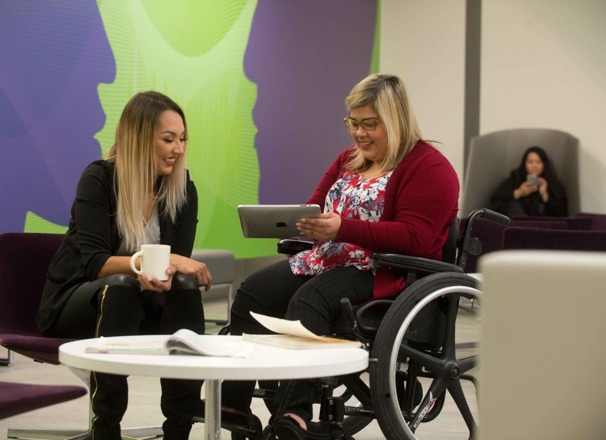Figuring out how much your post-secondary education will cost is the first step in planning how to pay for it.
How much school costs depends on:
- The location of your school (physical location or online)
- What kind of school and program you’ll be attending
- Whether you’re a full-time or part-time student
- How long it takes you to complete the program
- Living expenses while you study
Typical costs for one year
As you’ll see from the numbers below, costs can vary quite a lot. These numbers give you an estimate of what to prepare for—but it’s important to do your own research and figure out your specific costs.
- Tuition: $4,050 to $8,730
- Books and supplies: $1,307 to $1,717
- Mandatory fees: $611 to $1,275
- Living expenses (living with parents): $2,000 to $4,000
- Living expenses (living independently for 8 months): $9,000 to $11,200
Figure out your costs
The first thing you need to figure out is how much money you’ll have to pay your school. Your school should list the cost of tuition, books, supplies, and fees on their website. If you can’t find the information you’re looking for, contact the school directly to ask for it.
Then, you need to figure out how much money you can live on while you’re a student. This will depend on where you plan to live, and the lifestyle choices you make. You’ll also need to consider expenses like rent, utilities, food, clothing, and transportation.
Your costs may be higher if you:
- Move for school
- Travel home during the school year
- Live with a spouse or children
Explore different payment strategies
Many students pay for school using a combination of strategies:
- Working and saving money
- Applying for free money (including scholarships, awards, grants, and bursaries)
- Taking out student loans or a line of credit
Learn more about paying for your post-secondary education.
The federal government also provides information on budgeting for student life. Learn more about:
- Costs to include in your budget
- Sources of income
- Student credit cards
- Tax deductions and tax credits for students
Create a spending plan
With some effort and planning, you can create a spending plan that will help you get the most for your money and make it last right to the end of the school year.
Create a student spending plan to figure out how you’ll cover your costs while you’re a student.
Tip: Plan for 1 additional month of regular expenses. Otherwise, your bills could be due before you’re working full-time and have received a paycheque.
You may need to use some estimated numbers when you start. Don’t forget to update and adjust your plan as you figure out your actual costs and income.
Schedule some time at the end of each month to review where you’re at with your budget. If you bank online, review your spending through your bank’s website. You can even download an app to help you track your spending.
If you spent less than you planned, good for you! If you spent more, you’ll have to revise your budget. You’ll either have to spend less money or make more money—or you'll be eating mac n’ cheese until the end of the school year.
Being Responsible
Even if you get financial help with going to school, you must think about how you’re going to handle your money. Let’s say you get a grant to cover a good chunk of your expenses. No money to pay back. No more money worries. Right? Wrong! You will still have to manage your money responsibly.
Being responsible means making a commitment to follow the obligations that are attached to the funding. It also means understanding the expectations and requirements for receiving funding.
Being responsible means thinking ahead, being careful, and making tough choices. You have to make sure you have enough money to cover your expenses every month. It might also mean giving smaller gifts for special occasions or no gifts at all. Maybe it means you have to stay home on weekends instead of going out.
Living on a student budget isn't easy, but be patient. The financial sacrifices you’ll be making while you’re in school are only temporary. In the end, you and your family will benefit.




